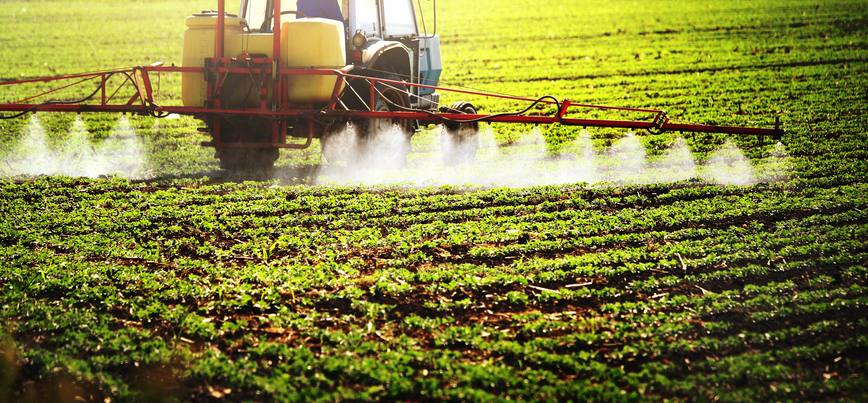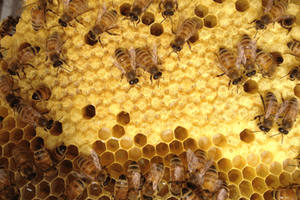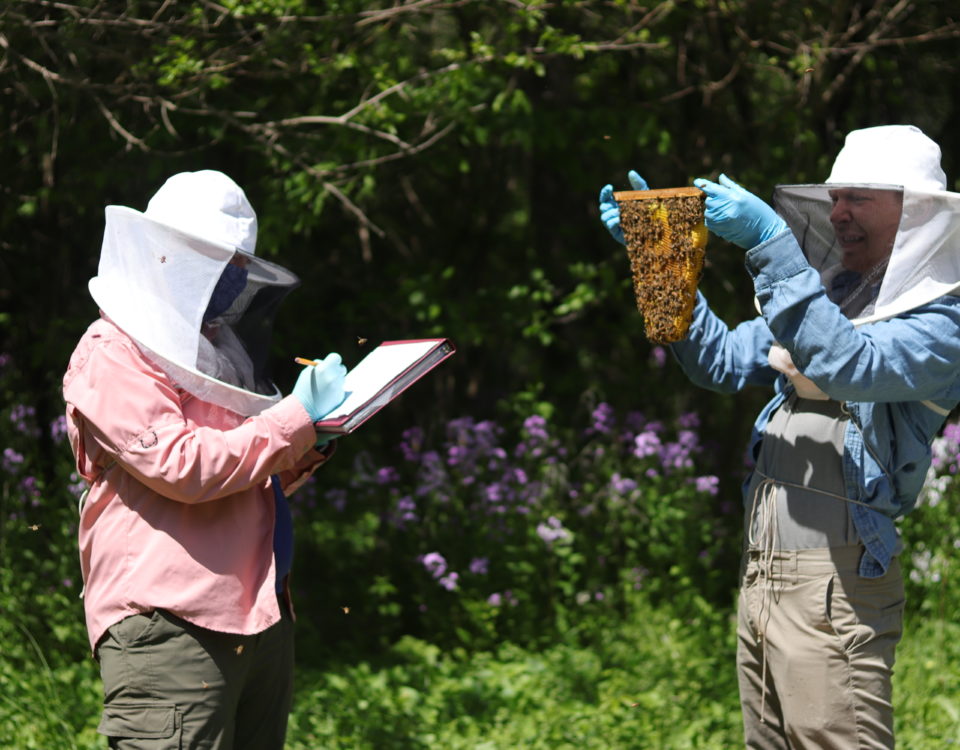- All-In-One Beekeeping for the Bees
- +1-608-728-8233
- info@beepods.com
What NOT to Spray – Beekeeping Edition

Imagine getting a new hive, being so excited to have your new bees, but not knowing about the detrimental effects of pesticides that you’ve been using on your yard for years. Pesticides have been a pressing topic of conversation for beekeepers due to their harmful effects on honeybee colonies. You can find articles upon articles of what NOT to spray around your bees but staying far away from pesticides can be harder than you think, and here’s why.
Honey bees are at risk to so many toxic substances, parasites, and other threats that affect their hive. As beekeepers, it is our job to make sure we keep them and their hive as healthy as possible.
But how much of this can we actually control?
You can control what substances you put on your body when beekeeping, like bug spray, and you can stay away from spraying pesticides in your yard such as
- diazinon
- Imidan
- malathion
- Sevin
We can’t control every aspect of what goes near our hives. Maybe there’s a nearby orchard that has been sprayed, a neighbor who is an avid gardener and uses insecticides. There is no way for you to know. That doesn’t mean we should harass our neighbors about it; but beekeepers need to be open with their community and let them understand how toxic these substances can be.
Beekeeping does not come without risks, and it is important to understand that before investing in your own hive. These are some factors to consider with pesticide application.
- Spray Drift: Remember we talked about that neighbor being an avid gardener? This is something to take seriously. Spray drift occurs more often than beekeepers would like and it is extremely harmful to bees. Spray drift is one of the most common causes of honey bee poisoning and it occurs when a pesticide has been applied to a crop that is not in flower; however, the pesticide has drifted onto flowers of other plant species. This is harmful to our hives because there is a significant chance that our honey bees will go and pollinate at those flowering plants and die off from the toxicity of the pesticide.
- Plant Growth Stage: Another common killer is spraying insecticide directly on flowering plants. This can be the most severe poisoning when it comes to honey bees and it is not recommended to spray insecticide onto blooming plants. Beekeepers need to be as cautious of this as they can.
- Type of formulation: Pesticides can come in many different forms and some may be more toxic than others. Pesticides that are made of dust are typically more invasive than liquid pesticides due to the fact that it can stick on honey bees’ hair easier. Pesticides can come in dusts, wettable powders, soluble powders, emulsifiable concentrates, solutions, and granulars
- Temperature: Believe it or not, temperature can have a dramatic effect on how toxic pesticides are to honey bees. Temperature can also affect toxic pesticides’ volatility, which is how much the pesticide evaporates.This means that toxic chemical levels will typically lower at higher temperatures because it causes more toxic chemicals to vaporize and become less concentrated within the honey bees.
If your colony has come in contact with pesticides, it may not be the end of the road. Even if a majority of your colony has died off, if they have enough honey, typically they will be able to reboot and build their colony back up. On the other hand, if the pesticide had made its way into the hive and you notice brood bees and nurse bees continuing to die, you may be out of luck. When your colony starts to die off, you need to remove the combs and they must be soaked in order to remove any residual pesticide.
If you are seriously considering investing in a hive or already have one, and you live next to an avid gardener, pesticide user, or big crop farm, it is crucial that you research or inquire about what pesticides and insecticides they use, as it will affect the health of your colony.
As a beekeeper, it is important to do everything you can in order to protect the hive and its bees. Honeybee colonies need your help!
If you need more information or have more questions about preventing pesticide exposure, reach out to us at info@beepods.com.
Elizabeth Allon
Latest posts by Elizabeth Allon (see all)
- Short But Mighty: The Stages of Life - January 26, 2022
- Honey Bees Vs. Highways - January 19, 2022
- 4 Ways to Save The Bees in 2022 - January 12, 2022



